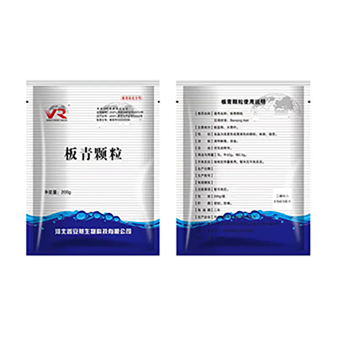- Afrikaans
- Albanian
- Amharic
- Arabic
- Armenian
- Azerbaijani
- Basque
- Belarusian
- Bengali
- Bosnian
- Bulgarian
- Catalan
- Cebuano
- Corsican
- Croatian
- Czech
- Danish
- Dutch
- English
- Esperanto
- Estonian
- Finnish
- French
- Frisian
- Galician
- Georgian
- German
- Greek
- Gujarati
- Haitian Creole
- hausa
- hawaiian
- Hebrew
- Hindi
- Miao
- Hungarian
- Icelandic
- igbo
- Indonesian
- irish
- Italian
- Japanese
- Javanese
- Kannada
- kazakh
- Khmer
- Rwandese
- Korean
- Kurdish
- Kyrgyz
- Lao
- Latin
- Latvian
- Lithuanian
- Luxembourgish
- Macedonian
- Malgashi
- Malay
- Malayalam
- Maltese
- Maori
- Marathi
- Mongolian
- Myanmar
- Nepali
- Norwegian
- Norwegian
- Occitan
- Pashto
- Persian
- Polish
- Portuguese
- Punjabi
- Romanian
- Russian
- Samoan
- Scottish Gaelic
- Serbian
- Sesotho
- Shona
- Sindhi
- Sinhala
- Slovak
- Slovenian
- Somali
- Spanish
- Sundanese
- Swahili
- Swedish
- Tagalog
- Tajik
- Tamil
- Tatar
- Telugu
- Thai
- Turkish
- Turkmen
- Ukrainian
- Urdu
- Uighur
- Uzbek
- Vietnamese
- Welsh
- Bantu
- Yiddish
- Yoruba
- Zulu
Dec . 12, 2024 02:01 Back to list
ivermectin injection for pigs
Ivermectin Injection for Pigs A Comprehensive Overview
Ivermectin is an antiparasitic medication widely recognized for its efficacy in treating various parasitic infections in both humans and animals. Among its many applications, ivermectin injection specifically for pigs has gained considerable attention in the veterinary field. This article delves into the significance, usage, and safety aspects of ivermectin injection for pigs, alongside its regulatory considerations and the latest research.
The Importance of Ivermectin in Swine
Pigs are susceptible to various parasites, such as gastrointestinal worms, lungworms, and ectoparasites like mites and lice. The impact of these parasites is multifaceted, leading to reduced growth rates, decreased feed efficiency, and, ultimately, economic losses for farmers and producers. Thus, the need for effective parasite control in pigs is paramount for maintaining herd health and optimizing production.
Ivermectin, derived from the bacterium *Streptomyces avermitilis*, is a broad-spectrum antiparasitic agent that has proven effective against a variety of parasites in pigs. Its mechanism of action involves targeting the nervous system of parasites, leading to paralysis and eventually death. This allows for effective control of infestations and helps maintain the overall health of swine herds.
Administration and Dosage
Ivermectin is commonly administered as an injection in swine, with dosages often ranging from 200 to 400 micrograms per kilogram of body weight, depending on the specific parasites being targeted and the farm management practices in place. The injectable form is preferred in many cases due to its ease of administration, especially in large operations where oral treatment may be less practical.
Veterinarians play a crucial role in determining the appropriate dosing regimens, taking into account factors such as the age, weight, and health status of the pigs, as well as the type and severity of the parasitic infestation. It is essential to follow the manufacturer's guidelines and recommendations to ensure efficacy and minimize any potential side effects.
ivermectin injection for pigs

Safety and Side Effects
Ivermectin is generally considered safe for pigs when used according to the recommended guidelines. However, as with any medication, there can be potential side effects. Some pigs may experience mild and temporary reactions at the injection site, such as swelling or itching. Allergic reactions, although rare, can occur and may require veterinary intervention.
Importantly, proper withdrawal times must be observed before sending pigs to slaughter to ensure that ivermectin residues do not enter the food chain. Regulatory authorities, including the U.S. Food and Drug Administration (FDA) and the European Medicines Agency (EMA), have established withdrawal periods to safeguard food safety. Farmers must adhere to these regulations to maintain compliance and protect public health.
Research and Development
Recent studies continue to explore the effectiveness of ivermectin in combating emerging parasitic threats in swine. Research is also focusing on the development of resistance among parasites, which could compromise the efficacy of ivermectin over time. Strategies such as rotational deworming and integration with other antiparasitic agents are being investigated to mitigate the risk of resistance.
Furthermore, there is an ongoing interest in alternative methods of parasite control in conjunction with ivermectin treatment, including improved management practices, nutrition, and biosecurity measures to reduce the overall parasite burden in swine populations.
Conclusion
Ivermectin injection remains a cornerstone of parasitic control in pig farming. Its effectiveness, ease of use, and wide safety margin make it a preferred choice among veterinarians and livestock producers. Nevertheless, it is crucial for those in the swine industry to stay informed about the appropriate use of ivermectin, adherence to withdrawal times, and the latest research on parasite management. By doing so, they can ensure the health and productivity of their herds while safeguarding public health. As the swine industry continues to evolve, ongoing research and responsible management will be essential to tackle the challenges posed by parasites and maintain the welfare of pigs globally.
-
Guide to Oxytetracycline Injection
NewsMar.27,2025
-
Guide to Colistin Sulphate
NewsMar.27,2025
-
Gentamicin Sulfate: Uses, Price, And Key Information
NewsMar.27,2025
-
Enrofloxacin Injection: Uses, Price, And Supplier Information
NewsMar.27,2025
-
Dexamethasone Sodium Phosphate Injection: Uses, Price, And Key Information
NewsMar.27,2025
-
Albendazole Tablet: Uses, Dosage, Cost, And Key Information
NewsMar.27,2025













